Freshwater plankton are tiny organisms that play a big role in keeping aquariums healthy. These microscopic creatures can make your home aquarium thrive.
Key Takeaways
| Aspect | Information |
|---|---|
| Types of Plankton | Phytoplankton (plant-like) and Zooplankton (animal-like) |
| Importance | Clean water, food source, maintain ecosystem balance |
| Benefits | Improve water quality, fish health, and overall aquarium stability |
| Maintenance | Regular feeding, proper lighting, water quality monitoring |
| Recommended Product | Bio-actiV Freshwater Plankton™ from AlgaGen Direct |
What Are Freshwater Plankton?
Plankton are small aquatic organisms that float in water. They can't swim against currents and come in two main types: phytoplankton (plant-like) and zooplankton (animal-like). These little guys range from too small to see to just barely visible.
Phytoplankton are like tiny plants. They use sunlight to make their own food through photosynthesis. This process not only feeds them but also produces oxygen, benefiting the entire aquarium ecosystem. Zooplankton are more like tiny animals. They eat other plankton or small bits of food in the water. Together, they form the base of the aquatic food chain, supporting life from the smallest fish to the largest aquarium inhabitants.
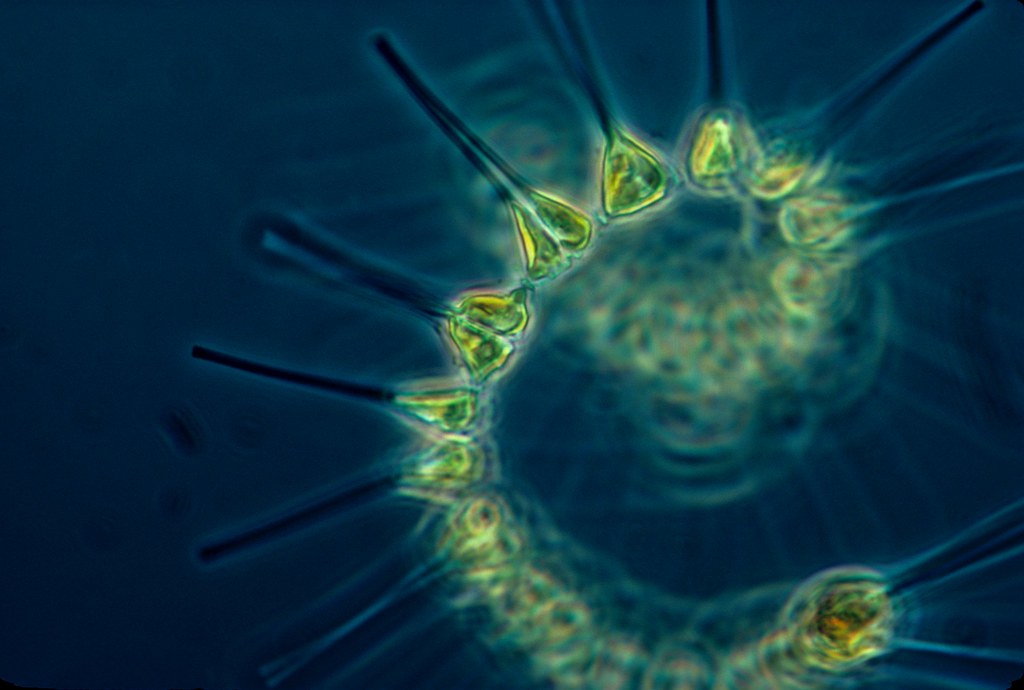
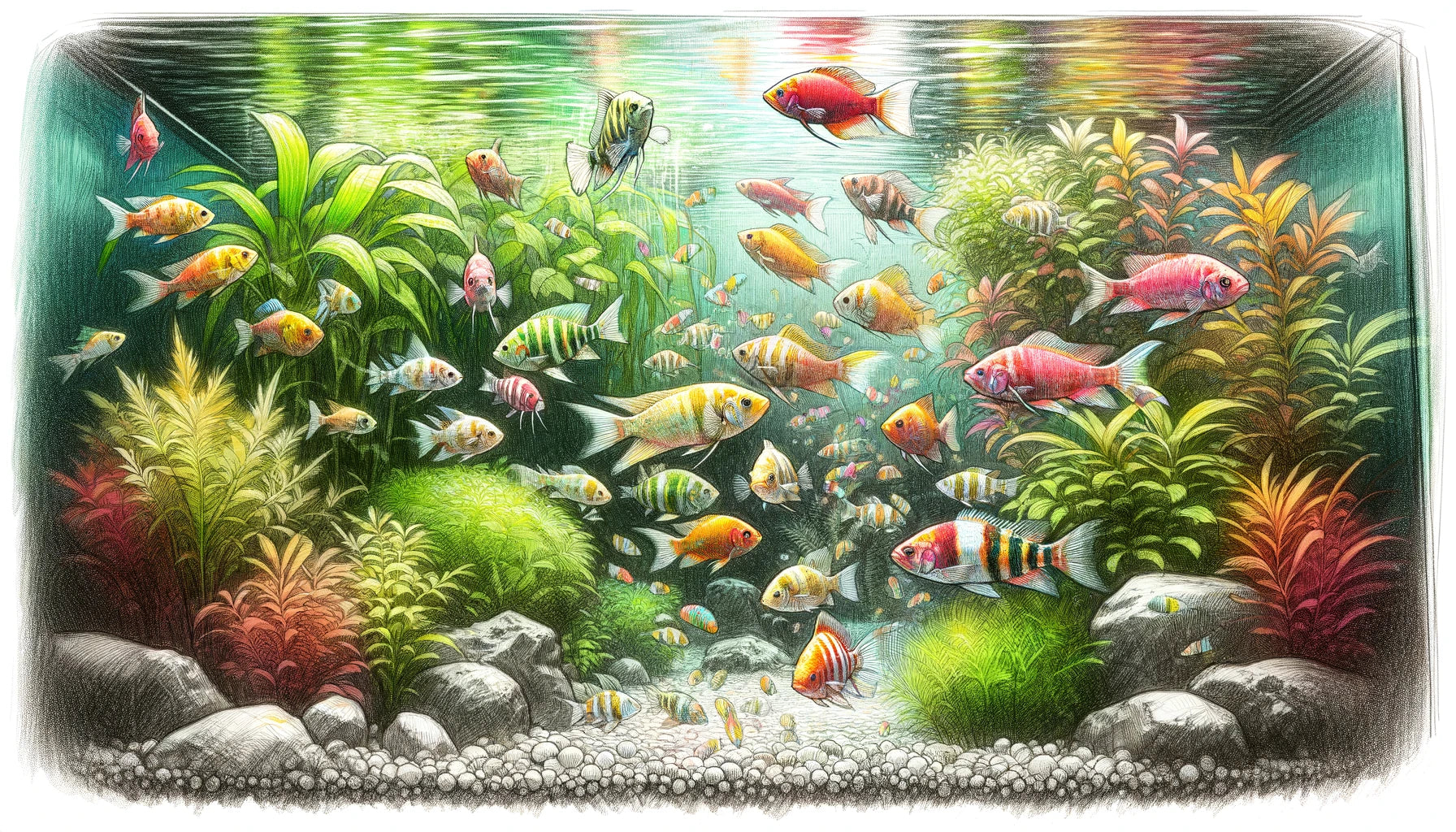
Why Are Plankton Important?
Plankton are super important for aquariums. They're like tiny janitors, helping to keep the water clean by eating extra nutrients. They're also food for fish and other aquarium creatures. When you have the right amount of plankton, your aquarium stays balanced and healthy.
The importance of plankton extends beyond just cleaning and feeding. They play a crucial role in maintaining the nitrogen cycle in aquariums. Phytoplankton absorb excess nitrates and phosphates, preventing algae blooms and maintaining water clarity. Zooplankton, on the other hand, help control bacterial populations and provide essential nutrients to fish, especially during their larval stages.
Explore our freshwater collection for a balanced ecosystem
Adding Plankton to Your Home Aquarium
Adding plankton to your aquarium can really help it thrive. But you need to choose the right kinds. Some plankton are better for freshwater tanks than others. It's like picking the right teammates for your aquarium team.
One great option is Bio-actiV Freshwater Plankton™ from AlgaGen Direct. This special mix of plankton is made just for freshwater tanks. It helps keep your water clean and gives your fish a healthy snack.
When introducing plankton to your aquarium, start with small amounts and gradually increase over time. This allows your aquarium's ecosystem to adjust and prevents any sudden changes in water chemistry. It's also important to consider the specific needs of your fish species, as some may require higher concentrations of certain plankton types.
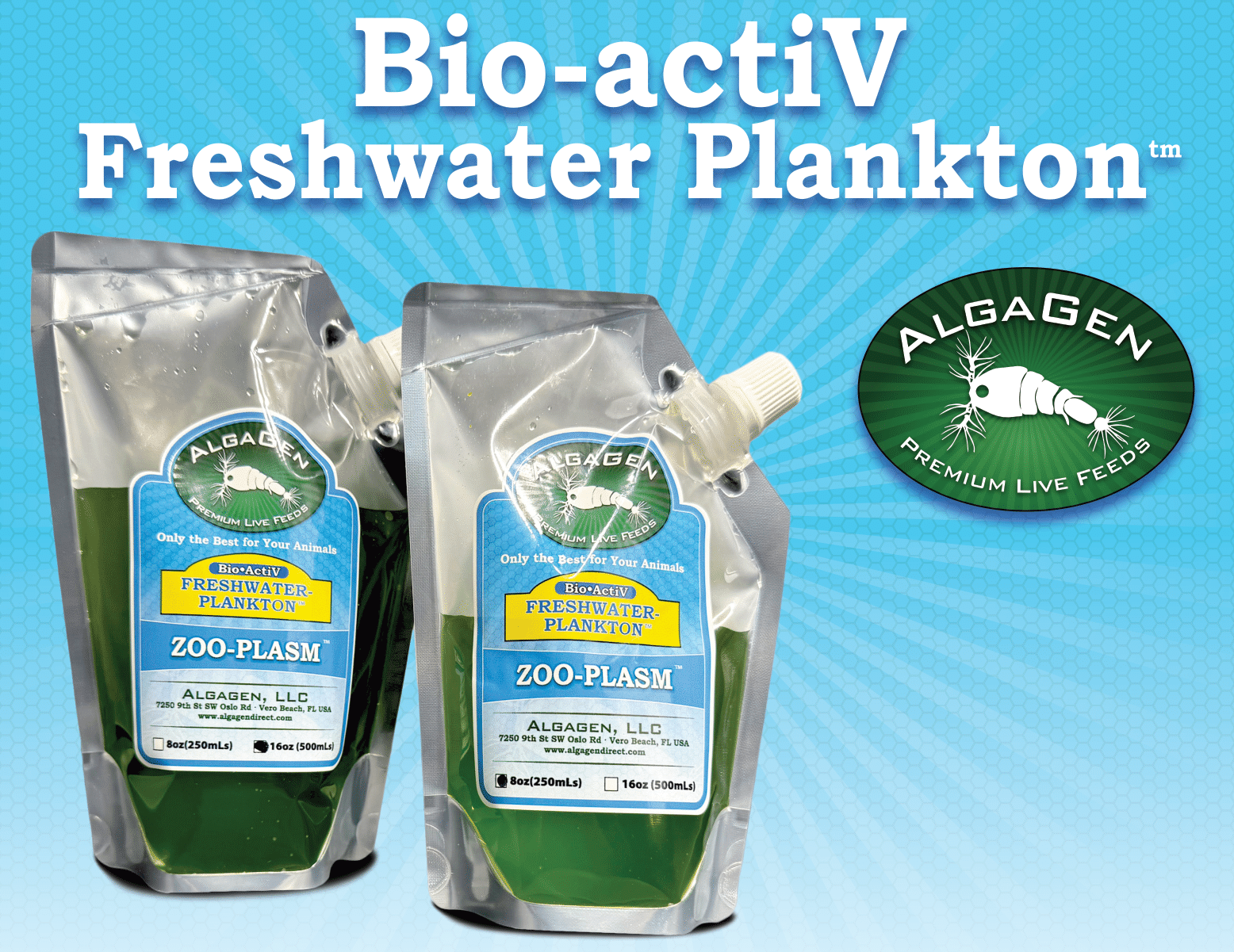
Shop our Bio-actiV Freshwater Plankton™ now
Copepods: Tiny Helpers in Your Tank
Copepods are a special type of zooplankton. They're like little shrimp that help keep your tank clean. Fish love to eat them, and they're great for baby fish too. Adding copepods to your tank is like hiring a cleaning crew that also feeds your fish!
Copepods are particularly beneficial for aquariums with small fish or fry. Their small size makes them an ideal first food for many species. Additionally, copepods help break down organic matter in the tank, contributing to overall water quality. Some aquarists even maintain separate copepod cultures to ensure a steady supply for their aquariums.
Read our blog on copepods for freshwater fish growth
Taking Care of Your Plankton
Once you add plankton to your tank, you need to take care of them. Here are some tips:
Key Points for Healthy Aquarium Plankton
- Feed regularly with specialized plankton food
- Maintain consistent tank lighting schedule
- Monitor water quality frequently
- Avoid overstocking plankton-eating fish
In addition to these tips, it's important to maintain stable water parameters. Plankton are sensitive to changes in pH, temperature, and salinity. Regular water changes and proper filtration are crucial for maintaining a healthy plankton population. Consider using a high-quality water conditioner to remove harmful chemicals that could affect plankton growth.
Check out our freshwater feeds for optimal plankton health
Feeding Your Fish with Live Plankton
Feeding your fish with live plankton is a great way to mimic what they'd eat in nature. It's like serving your fish a fresh, healthy meal instead of fast food. AlgaGen Direct offers special live feeding solutions that make this easy to do at home.
Live plankton feeding has numerous benefits for fish. It stimulates natural hunting behaviors, which can reduce stress and aggression in the aquarium. Live plankton also retain more nutrients compared to processed foods, leading to better coloration and overall health in fish. For breeding tanks, live plankton are essential as they provide the perfect first food for many species of fish fry.
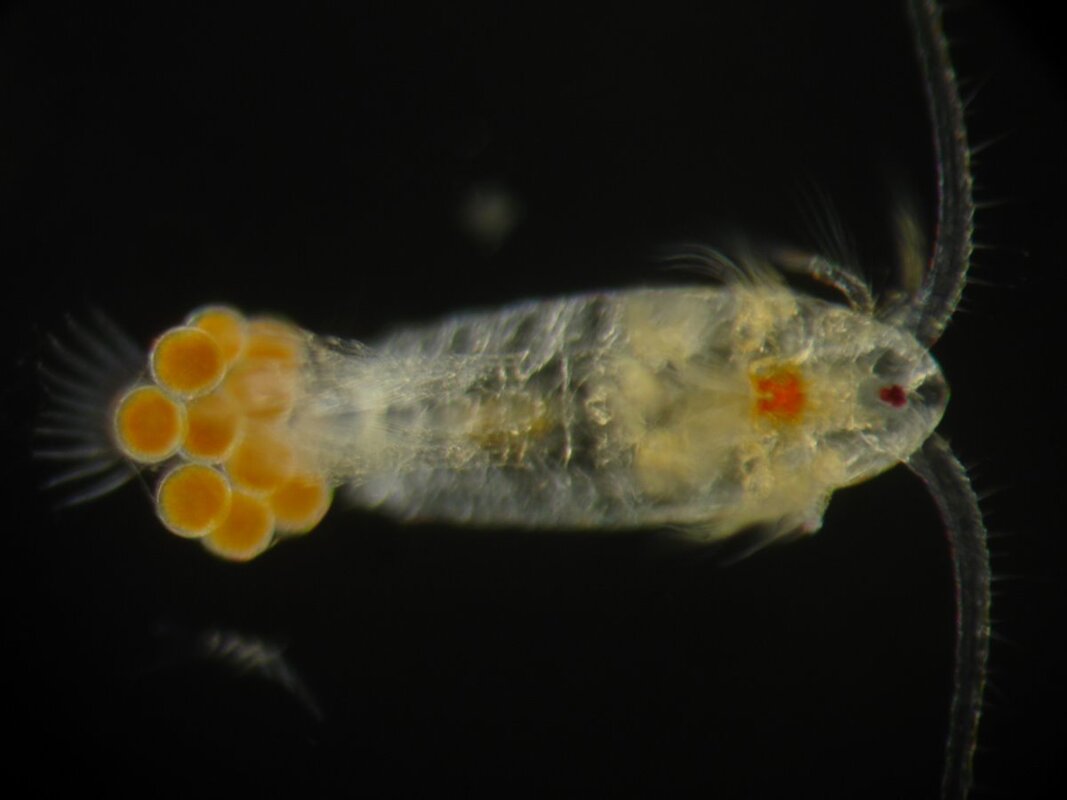
Learn about our innovative live feeding techniques
Solving Common Plankton Problems
Sometimes, you might run into issues with plankton in your tank. Here are some common problems and how to fix them:
Too much algae
Reduce light and nutrients
Not enough plankton
Add more or improve feeding
Cloudy water
Check filtration and water quality
Unhealthy fish
Ensure balanced plankton levels
When dealing with plankton-related issues, it's important to address the root cause rather than just treating symptoms. For example, if you're experiencing excessive algae growth, consider reducing feeding amounts and checking for any excess nutrients in the water. In cases of cloudy water, a thorough cleaning of your filtration system and a partial water change can often resolve the issue. Remember that maintaining a balanced ecosystem takes time and patience.
Explore our blog for more aquarium care tips
Wrapping Up: The Power of Freshwater Plankton
Freshwater plankton are amazing little creatures that can really boost your aquarium's health. They clean the water, feed your fish, and help keep everything in balance. By adding the right kinds of plankton and taking good care of them, you can create a thriving underwater world in your own home.
Remember, a healthy aquarium is all about balance. Plankton are a key part of that balance. They contribute to the overall biodiversity of your tank, enhancing its natural beauty and functionality. As you become more familiar with managing plankton in your aquarium, you'll likely notice improvements in water clarity, fish health, and the overall vibrancy of your underwater ecosystem.
So why not give them a try? Your fish (and your aquarium) will thank you! With the right approach and products, you can harness the power of these microscopic marvels to create a stunning and thriving aquatic environment that's a joy to observe and maintain.
Start enhancing your aquarium with our freshwater plankton products

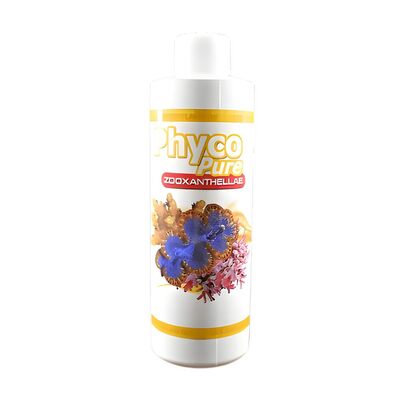
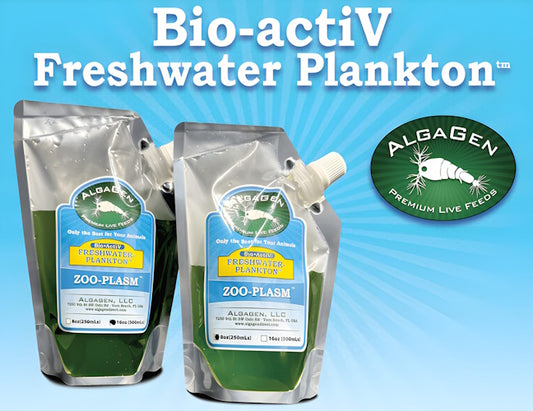
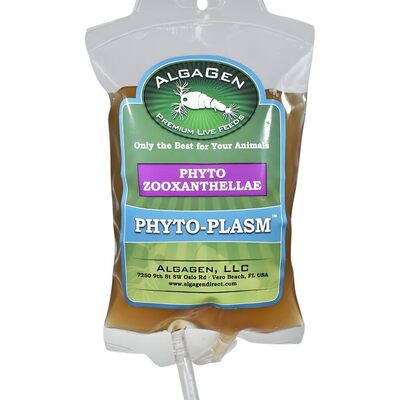
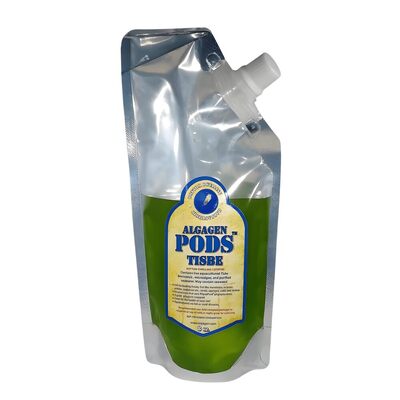
Recent post